12:00 PM — 12:10 PM: Welcome Back with Ritesh Mistry, PhD
12:10 PM — 2:00 PM Session Three: Flavor restrictions: Regulatory, empirical, and modeling considerations
- Speakers will discuss regulations regarding flavors in nicotine and tobacco products, the role of flavors in tobacco use behaviors, the epidemiological data on the use of flavors, and the unique challenges of modeling flavor restrictions in the context of multiple products.
- Session chair: Alex Liber
- 12:10 PM — 12:15 PM: Session Three Introduction with Alex Liber, PhD
- ❏ Watch this presentation
- 12:15 PM — 12:35 PM: “Overview of flavor use and policy relevance” with Andrea Villanti, PhD, MPH
- ❏ Watch this presentation❏ Slides from this presentation
- About this presenter and presentation +
 Andrea Villanti, PhD, MPH
Andrea Villanti, PhD, MPH- “Overview of flavor use and policy relevance”
- Dr. Villanti will provide an overview of the role of flavors in tobacco use behaviors, as well as epidemiological and sales data on the use of flavored tobacco products in the U.S.
- Andrea Villanti, PhD, MPH
- : Associate Professor, Department of Health Behavior, Society and Policy
- Webpage: sph.rutgers.edu
- Andrea Villanti, PhD, MPH, is Deputy Director of the Rutgers Center for Tobacco Studies and Associate Professor in the Department of Health Behavior, Society and Policy at the Rutgers School of Public Health. She also holds an adjunct faculty appointment in the Department of Psychiatry at the University of Vermont Larner College of Medicine. Dr. Villanti’s primary focus is on young adult tobacco use, including predictors and patterns of use and interventions to reduce tobacco use in young adults. She also has expertise in population surveillance of tobacco and substance use and translational research to improve substance use-related policy and program decision-making, including tobacco regulatory science. She received her doctorate in social and behavioral sciences from the Johns Hopkins University and her master’s in public health degree from Columbia University.
- 12:35 PM — 12:55 PM: “Impact of flavors on initiation, cessation, switching, and health effects” with Liane Schneller, MS, PhD
- ❏ Watch this presentation❏ Slides from this presentation
- About this presenter and presentation +
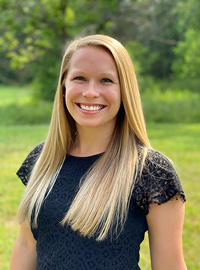 Liane Schneller, MS, PhD
Liane Schneller, MS, PhD- “Impact of flavors on initiation, cessation, switching, and health effects”
- Dr. Schneller will discuss various studies that assess the association of characterizing flavors with changes in tobacco use behaviors and their health effects.
- Liane Schneller, MS, PhD
- Roswell Park Comprehensive Cancer Center:
- Liane Schneller is a Research Scientist at Roswell Park Comprehensive Cancer Center in Buffalo, NY. She received an MS in Natural Sciences (2014) and a PhD in Cancer Sciences (2019) through the Roswell Park Graduate Division at the University at Buffalo, the State University of New York. Her graduate research focused on the engineering of cigarettes, including cigarette filter ventilation and delivery methods of menthol in cigarettes. Dr. Schneller went on to complete a 1-year TL-1 postdoctoral fellowship focused on National, Regional and Local Database Analytics in the Clinical and Translational Science Institute at the University of Rochester Medical Center. She was the TL-1 Post-Doctoral Representative, and has received the NIH Loan Repayment Plan for Clinical Research. Dr. Schneller is a part of the study team for Western New York-based Center for Research on Flavored Tobacco Products (CRoFT). Her research interests include policy impact analysis, product design influence on use behavior, and youth and young adult nicotine and tobacco use behaviors.
- 12:55 PM — 1:15 PM: “Modeling flavored tobacco use and the impact of flavor restrictions: challenges and opportunities” with Rafael Meza, PhD
- ❏ Watch this presentation❏ Slides from this presentation
- About this presenter and presentation +
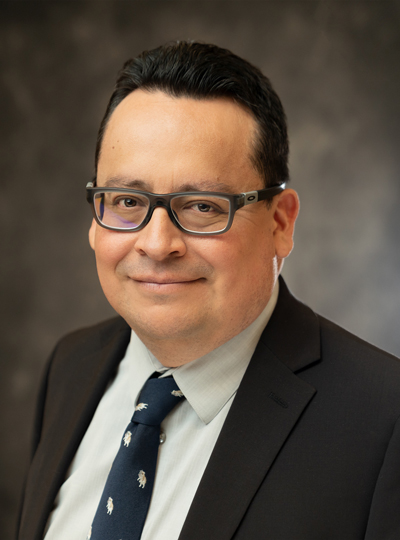 Rafael Meza, PhD
Rafael Meza, PhD- “Modeling flavored tobacco use and the impact of flavor restrictions: challenges and opportunities”
- In this talk, Dr. Rafael Meza will discuss approaches to modeling the impact of tobacco flavor restrictions and discuss the data needs. Using the modeling of the menthol cigarette ban as an example, Dr. Meza will summarize the steps needed to project the impact of flavor restrictions and discuss the challenges of extending previous menthol cigarette models to other tobacco products.
- Rafael Meza, PhD
- University of Michigan: Professor, Epidemiology; Professor of Global Public Health; Co-Leader, Cancer Epidemiology and Prevention Program, UM Rogel Cancer Center; CAsToR Principal Investigator
- Profile: sph.umich.edu
- Dr. Meza is a Distinguished Scientist at the British Columbia Cancer Research Institute and Distinguished Scholar in Lung Cancer Screening and Prevention at the University of British Columbia. Dr. Meza's research interests lie at the interface of epidemiology, biostatistics and biomathematics. He is an expert in lung cancer epidemiology and prevention and tobacco epidemiology and control. The goal of his research program is to characterize the impact of disease prevention and control interventions, informing stakeholders and policy makers as to the most effective and efficient ways to improve population health. In particular, he is interested in cancer risk assessment and the analysis of cancer epidemiology data using mechanistic models of carcinogenesis. He is also interested in the mathematical modeling of chronic and infectious disease dynamics and its applications in disease prevention public health policy design. Dr. Meza is Principal Investigator of the Center for the Assessment of Tobacco Regulation (CAsToR) and Coordinating Principal Investigator of the Cancer Intervention and Surveillance Modeling Network (CISNET) Lung Working Group. Prior to joining BC Cancer, Dr. Meza was Professor of Epidemiology and Global Health at the University of Michigan and co-Leader of the Cancer Control and Population Sciences of the Rogel Cancer Center.
- 1:15 PM — 1:35 PM: “Reactions to hypothetical flavor bans among current users of flavored tobacco or nicotine products” with Yong Yang, PhD
- ❏ Watch this presentation❏ Slides from this presentation
- About this presenter and presentation +
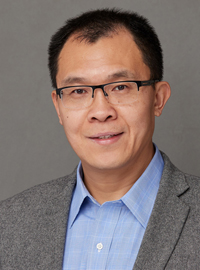 Yong Yang, PhD
Yong Yang, PhD- “Reactions to hypothetical flavor bans among current users of flavored tobacco or nicotine products”
- This study examined how current smokers using menthol cigarettes or flavored cigars, and current users of flavored e-cigarettes may respond to various hypothetical flavor-ban scenarios. Our results indicate that a ban on menthol cigarettes and flavored cigars would decrease smoking. However, it is unclear if adding a ban of menthol e-cigarettes would lead to additional benefits because without menthol e-cigarettes as an alternative, some smokers and e-cigarette users may switch to non-flavored tobacco smoking, rather than quit all tobacco use. For current e-cigarette users, a concurrent ban on menthol cigarettes and flavored cigars would secure more certain net reductions to public health harms from e-cigarette use and smoking.
- Yong Yang, PhD
- University of Memphis: Assistant Professor
- Yong Yang, PhD, is an Associate Professor at the School of Public Health at the University of Memphis. His research interests include the study of neighborhood and health behaviors, aging and mental health, tobacco regulatory science, and the application of systems science methods in the field of public health. He obtained his PhD in Health Geography from the University of Southampton and completed postdoctoral training at the University of Michigan.
- 1:35 PM — 2:00 PM: Session Three Q & A with Rafael Meza, PhD, Liane Schneller, MS, PhD, Andrea Villanti, PhD, MPH and Yong Yang, PhD
- ❏ Watch this presentation
- 2:00 PM — 2:15 PM: Break
2:15 PM — 4:30 PM Session Four: Modeling the impact of regulations restricting flavors in cigarettes and cigars
- Speakers will present modeling studies about menthol cigarettes, regulating menthol in cigarettes, and regulating flavors in cigars. The session will feature population models and an agent-based model.
- Session chair: Jamie Tam
- 2:15 PM — 2:20 PM: Session Four Introduction with Jamie Tam, PhD
- ❏ Watch this presentation
- 2:20 PM — 2:40 PM: “Estimating the public health consequences of menthol cigarettes on smoking prevalence and premature mortality from 1980 through 2018” with Thuy Le, PhD
- ❏ Watch this presentation❏ Slides from this presentation
- About this presenter and presentation +
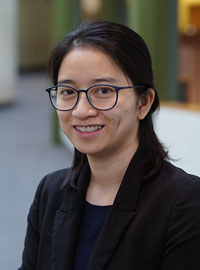 Thuy Le, PhD
Thuy Le, PhD- “Estimating the public health consequences of menthol cigarettes on smoking prevalence and premature mortality from 1980 through 2018”
- This talk will discuss our work on the public health consequences of menthol cigarettes on smoking prevalence and premature mortality from 1980 through 2018.
- Thuy Le, PhD
- University of Michigan: Assistant Research Scientist
- Dr. Le is interested in mathematical modeling for cancer and tobacco research, and machine learning applications in tobacco regulatory science. Dr. Le has developed mathematical models to evaluate the benefits and harms of breast cancer mammography and predict the number of white blood cells during acute lymphoblastic maintenance therapy. Dr. Le has recently focused on employing mathematical models to quantify the burden of menthol cigarettes on public health and estimate the smoking cessation rate. In addition, Dr. Le is working on applying machine learning techniques to predict and understand smoking behaviors.
- 2:40 PM — 3:00 PM: “Modeling a menthol ban using the menthol smoking and vaping model” with David Levy, PhD
- ❏ Watch this presentation❏ Slides from this presentation
- About this presenter and presentation +
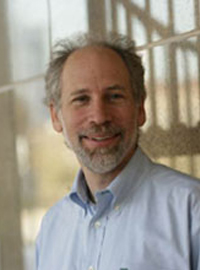 David Levy, PhD
David Levy, PhD- “Modeling a menthol ban using the menthol smoking and vaping model”
- A discussion of the Menthol Smoking and Vaping Model (SAVM), which was developed to examine the public health impact of a menthol cigarette ban. This talk will cover the evidence used to develop the model as well as how the model incorporates the potential role of ENDS use as a substitute for menthol cigarettes.
- David Levy, PhD
- Georgetown University: Professor, Georgetown University Medical Center; CAsToR Principal Investigator
- Profile: georgetown.edu
- Dr. David Levy is PI for CAsToR at Georgetown University and co-Lead of Projects 1 - 3, and the Research Assessment and Input Development Core. He received his PhD in Economics from UCLA (USA), and is currently a Professor of Oncology at Georgetown University. He has published over 350 articles, in renowned journals such as the American Economic Review, BMJ, AJPH, JAMA, The Lancet, Tobacco Control, and PLOS Medicine. He has been principal investigator of grants from the CDC, WHO, the National Cancer Institute, and Bloomberg/Gates Foundation. Dr. Levy currently oversees the design and development of the SimSmoke tobacco policy simulation model, for which he has developed models for over 40 countries covering 85% of the world’s population, and has recently developed models of smokeless tobacco and e-cigarette use. In addition to being a principal investigator on the TCORS grant, he is currently a principal investor on a National Cancer Institute grant with the International Tobacco Control Policy Evaluation Project (theITCProject) in which he has developed models of e-cigarette use for Canada and England; and is a principal investigator in the National Cancer Institute CISNET Lung Group. He has recently published articles providing a public health framework and the Smoking and Vaping Model (SAVM) for evaluating e-cigarettes and showing the potential benefits of e-cigarettes. He has also developed a version of that model to examine the impact if cigarette companies had started marketing very low nicotine delivery cigarettes in earlier years when the risk of smoking had become clear.
- 3:00 PM — 3:20 PM: “Modeling the impact of regulations restricting flavors in cigarettes and cigars using Tobacco Town” with Ross Hammond, PhD
- About this presenter and presentation +
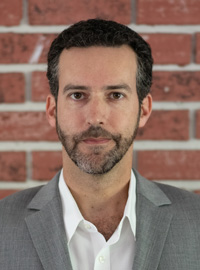 Ross Hammond, PhD
Ross Hammond, PhD- “Modeling the impact of regulations restricting flavors in cigarettes and cigars using Tobacco Town”
- In this talk, Dr. Ross Hammond will present some recent work using Tobacco Town, an agent-based model for studying retail tobacco control policies (including flavor restrictions). He will cover the application of Tobacco Town to flavor restrictions in the Tobacco Town Minnesota study, as well as ongoing work as part of the NCI-funded ASPIRE center.
- Ross Hammond, PhD
- Brookings Institution: Director, Center on Social Dynamics and Policy
- Washington University in St. Louis: Associate Professor
- Ross Hammond is the Betty Bofinger Brown Professor of Public Health at Washington University in St. Louis, as well as Director of the Center on Social Dynamics & Policy and Senior Fellow in Economics at The Brookings Institution. With over 25 years of experience in complex systems science methodologies, Hammond brings his expertise in these approaches to problems in social science, public policy, and public health. Hammond’s research applies complex systems modeling tools to generate new insights into the social dynamics that drive many difficult policy problems, as well as to identify potential leverage points or windows for intervention. Current topics include tobacco control, obesity prevention, health disparities, pandemic containment, implementation science, and the food system. Professor Hammond is an advisory Special Government Employee at the FDA’s Center for Tobacco Products, serves on the Food and Nutrition Board of the National Academies of Science, and is chairing a working group at the USDA. He previously served as a DHHS-appointed Advisory Council on Minority Health and Health Disparities at NIH, on several National Academy of Sciences consensus panels, and on the Lancet Commission on Obesity. Hammond holds additional academic appointments at the Santa Fe Institute and the Australian National University.
- 3:20 PM — 3:30 PM: Break
- 3:30 PM — 3:50 PM: “Population health estimates of impact of flavored cigar restrictions” with Brian Rostron, MA, MPH, PhD
- ❏ Watch this presentation❏ Slides from this presentation
- About this presenter and presentation +
 Brian Rostron, MA, MPH, PhD
Brian Rostron, MA, MPH, PhD- “Population health estimates of impact of flavored cigar restrictions”
- This presentation reviews preliminary estimates of potential impacts of a prohibition on characterizing flavors other than tobacco in cigars on US population health that have been published by FDA. Cessation estimates were based on observed effects of flavor restrictions in localities as well as literature on the effects of tax increases on cigarette consumption. It was estimated that approximately 800 US cigar smoking-attributable deaths would be averted per year with a restriction on characterizing flavors in cigars. Initiation estimates were based on data such as cigar smoking prevalence among young people and the proportion of these young cigar smokers who initiated with a flavored product. It was estimated that there would be about 60,000 fewer current cigar smokers in a cohort of 18-year-olds in the US. General observations about potential updates and extensions to this approach are also discussed.
- Brian Rostron, MA, MPH, PhD
- Food and Drug Administration: Epidemiologist, Center for Tobacco Products, Office of Science
- Dr. Brian Rostron is a Health Scientist in the Epidemiology Branch 1 in the Office of Science of FDA’s Center for Tobacco Products. He holds an MA and PhD in demography and an MPH in Epidemiology from the University of California, Berkeley. He was a fellow at the National Center for Health Statistics for two years and joined FDA/CTP in 2010, where he has worked in Statistics and Epidemiology Branches in the Office of Science. He has worked on a variety of research projects at CTP including survey and biomarker data analysis, as well as estimation and modeling work on flavored cigars and nicotine reduction.
- 3:50 PM — 4:10 PM: “Modeling the impact of flavored cigars ban: challenges and perspectives” with Jihyoun Jeon, PhD, MS
- ❏ Watch this presentation❏ Slides from this presentation
- About this presenter and presentation +
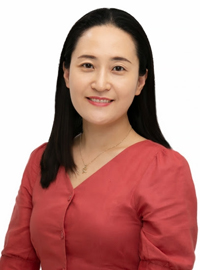 Jihyoun Jeon, PhD, MS
Jihyoun Jeon, PhD, MS- “Modeling the impact of flavored cigars ban: challenges and perspectives”
- The U.S. Food and Drug Administration (FDA) proposed banning menthol cigarettes and flavored cigars. Final rulings are expected by Fall 2023. These bans aim to prevent youth initiation of smoking and to reduce tobacco-related disease and death, especially in a population that disproportionately uses flavored tobacco products. In this talk, Dr. Jeon will introduce simulation models of cigarette and cigar flavored and unflavored use, currently under development by CAsToR investigators, to evaluate the impact of flavor restrictions on future patterns of these tobacco products and downstream health outcomes.The talk will address some challenges in generating input parameters for these models, particularly due to the limited available data on cigar use historical patterns, and discuss the role of modeling in exploring the impact of regulations targeting cigars and other non-cigarette products.
- Jihyoun Jeon, PhD, MS
- University of Michigan: Associate Research Scientist
- Webpage: sph.umich.edu
- Dr. Jeon is interested in developing models based on biological and clinical mechanisms and statistical methods to evaluate the impact of risk factors on various cancers and improve cancer outcomes. These modeling efforts aim to address important practical public health and clinical questions, such as the efficacy of screening to reduce cancer incidence/mortality and assist public health policymakers in their decision process. Particularly, Dr. Jeon’s current research focuses on understanding the underlying mechanisms of the natural history of cancer and developing innovative methodologies and computational tools to accurately predict the risk of lung cancer and colorectal cancer by taking into account personal histories of environmental exposures and biological and genetic factors. Dr. Jeon has been a key investigator of the Cancer Intervention and Surveillance Modeling Network Lung Working Group (CISNET LWG) since 2008, working on developing and managing CISNET’s Smoking History Generator (SHG) and its data sources. Dr. Jeon has also expanded her modeling expertise to tobacco regulatory science. Dr. Jeon is co-Lead of the Center for the Assessment of Tobacco Regulations (CAsToR) - Data Analysis and Dissemination Core funded by FDA-NIH TCORS 2.0 and has established the center infrastructure to process multiple cross-sectional and longitudinal datasets to support numerous center projects. Dr. Jeon has extensive experience with population data analysis, simulation modeling, and statistical analysis to explore various public health problems on tobacco and its related diseases.
- 4:10 PM — 4:30 PM: Session Four Q & A with Ross Hammond, PhD, Jihyoun Jeon, PhD, MS, Thuy Le, PhD, David Levy, PhD and Brian Rostron, MA, MPH, PhD
- ❏ Watch this presentation
4:30 PM — 5:05 PM: Closing panel discussion: Where should we go from here?
- Panelists will share and discuss, through brief comments and a Q & A session, what they see on the horizon for computational modeling in tobacco regulatory science, particularly the regulation of flavors and nicotine concentrations.
- Session chair: Scott Leischow
- 4:30 PM — 4:35 PM: Panel Introduction with Scott Leischow, PhD
- 4:35 PM — 5:05 PM: Panel Discussion with Matthew Farrelly, PhD, Andrew Hyland, PhD and Robin J. Mermelstein, PhD
- ❏ Watch this presentation
- Chair and Panelists +
-
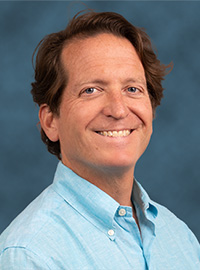 Matthew Farrelly, PhD
Matthew Farrelly, PhD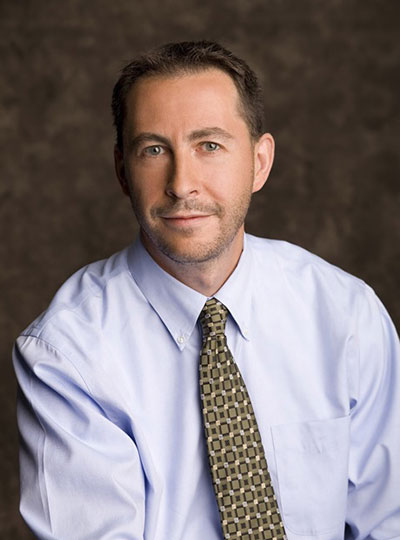 Andrew Hyland, PhD
Andrew Hyland, PhD Scott Leischow, PhD
Scott Leischow, PhD Robin J. Mermelstein, PhD
Robin J. Mermelstein, PhD
-